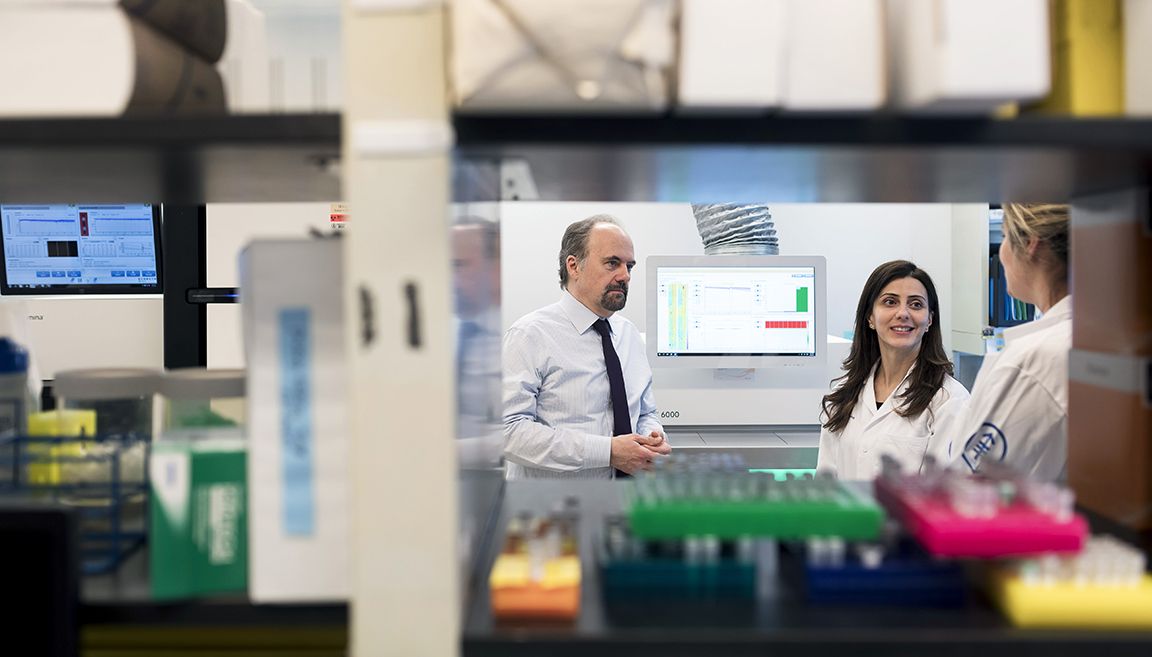The Impact of Cycle for Survival

The support provided through Cycle for Survival is critical to advancing the most bold and innovative science and enables us to make rapid progress.
–Vinod Balachandran, MD, Director of The Olayan Center for Cancer Vaccines at MSK
Because of Cycle for Survival
Because of Cycle for Survival, progress is happening where it matters most. You’re helping researchers at MSK develop new treatments, launch groundbreaking clinical trials, and bring hope to people with rare cancers. Explore the real-world impact your support makes possible.
More precise, personalized care

Cycle for Survival funded MSK-IMPACT®, a test that analyzes more than 500 cancer genes to match patients with targeted therapies. It also supported MSK-ACCESS®, a liquid biopsy that detects cancer DNA in blood.
How do the tests work?Training immune cells to fight

MSK is a pioneer in CAR T cell therapy, which reprograms immune cells to fight blood cancers like leukemia. Cycle for Survival funds efforts to adapt this therapy for solid tumors, aiming to transform treatment for rare cancers.
More on immune cellsFaster FDA approvals

Cycle for Survival funding has helped develop or test at least six FDA-approved therapies, bringing lifesaving options to people with rare cancers who previously had few or no treatments.
Explore an FDA approvalInnovative clinical trials

Rare cancers are often overlooked in therapy development. Cycle for Survival ensures innovative clinical trials and drug development for rare cancers get the critical funding needed to advance and bring new treatments to patients.
One powerful example
From bold ideas to lifesaving innovations
What are rare cancers?

